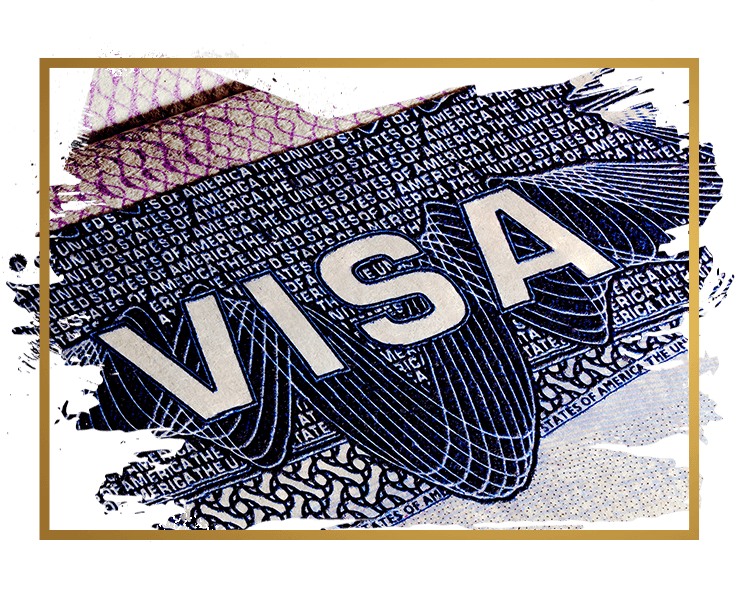
VAWA Attorney in Charleston, SC
Protecting Immigrants’ Rights in South Carolina
Certain foreign nationals who are victims of domestic abuse and living in the U.S. may obtain a Green Card under the Violence Against Women Act, or VAWA. Victims who were abused by certain U.S. citizens or lawful permanent residents may apply for a Green Card if they qualify, allowing them to escape abuse while remaining lawfully in the U.S.
At Maghzi Law Firm, we are dedicated to safeguarding the rights of those most vulnerable, ensuring that survivors of domestic abuse can access the legal protection they need. Serving Charleston and surrounding areas in South Carolina, our experienced team is here to provide compassionate guidance through every step of the VAWA process. We understand that navigating the complexities of immigration law can be overwhelming; therefore, we are committed to offering tailored advice designed to ease stress and provide clarity.
When you need an experienced, multilingual team of legal professionals, do not hesitate to call a VAWA immigration attorney at Maghzi Law Firm at (843) 800-2750. We offer services in Spanish, Portuguese, and Farsi.
What Is VAWA?
The Violence Against Women Act (VAWA) is a landmark piece of legislation that protects victims of domestic violence. Despite its name, VAWA is not exclusive to women. In fact, the legislation covers all victims of domestic abuse, including all genders, races, and sexual orientations.
VAWA also protects immigrants living in the U.S. under an abusive U.S. citizen or lawful permanent resident and those whose entry into the U.S. depends on the assistance of an abusive individual.
The Maghzi Law Firm, LLC, believes that immigrants seeking citizenship in the U.S. deserve to have quality legal representation every step of the way. Our founding attorney, Ameneh Maghzi, is an immigrant and attorney who understands the difficulties you may face when entering the United States. That is why we offer a wide variety of immigration services to meet the unique needs of our clients.
Who Is Eligible for VAWA?
The Violence Against Women Act was introduced in 1994 and was the first federal bill of its kind to recognize sexual assault and domestic violence as crimes. Combining the power of the federal and state governments, it uses national resources to encourage a grassroots response to domestic violence in communities across the United States.
VAWA is open for reauthorization every five years. This allows lawmakers to build on the existing foundation and include more people who need protection. For example, the reauthorization signed in 2013 expanded protection to include immigrants, giving abuse victims the right to petition for legal status in the U.S.
The Violence Against Women Act applies to the spouses and children of abusive lawful permanent residents or U.S. citizens. To qualify for VAWA, the victim must have proof that they entered the marriage in good faith. Petitioners cannot have a criminal record. Under the law, self-petitioners can leave abusive situations without fear of jeopardizing their status in the U.S.
Understanding the eligibility criteria is crucial for potential applicants considering filing a VAWA petition. It's not merely about meeting basic requirements; the success of a VAWA petition often hinges on the ability to build a compelling case. Our role at Maghzi Law Firm is to assist clients in documenting their relationships and substantiating their claims of abuse, ensuring that all necessary evidence is provided to strengthen their petition.
Eligibility Under the Violence Against Women Act
Self-petitioners must meet certain conditions to be eligible for status under VAWA. Petitioners are exempt from restrictions to adjust their status, which means that victims can seek safety from an abusive situation without worrying that it may jeopardize their immigrant status in the United States.
You are eligible for VAWA if you have experienced abuse from:
- A U.S. citizen spouse
- A U.S. citizen parent
- A U.S. citizen son or daughter
- A lawful permanent resident parent
- A lawful permanent resident spouse or former spouse
Looking for a VAWA immigration lawyer in Charleston? Contact us online or call (843) 800-2750 today for compassionate, expert assistance on your case!
Provisions Under VAWA
The Violence Against Women Act (VAWA) includes several key provisions aimed at addressing and preventing domestic violence, sexual assault, stalking, and other forms of gender-based violence.
Some of the important provisions under VAWA include:
- Protection for Survivors: VAWA enhances legal protections for survivors of domestic violence, dating violence, sexual assault, and stalking by expanding access to protective orders, restraining orders, and other civil remedies.
- Grant Programs: VAWA allocates funding for grant programs that support initiatives such as victim assistance services, transitional housing, legal aid, law enforcement training, and prevention efforts targeting violence against women.
- Immigrant Survivors: The Act includes provisions to protect immigrant survivors of domestic violence and sexual assault, including the U visa and the Violence Against Women Act (VAWA) self-petition, which offer pathways to lawful immigration status independent of abusers.
- Tribal Jurisdiction: VAWA recognizes and strengthens tribal jurisdiction over certain domestic violence cases involving non-Native perpetrators on tribal lands, addressing jurisdictional complexities and improving safety for Native American and Alaska Native communities.
- Criminal Justice Response: VAWA supports the criminal justice system's response to gender-based violence by promoting coordinated community responses, specialized law enforcement units, and improved prosecution of violent crimes.
- Campus Sexual Violence: VAWA includes provisions related to addressing and preventing sexual violence on college campuses, including requirements for educational institutions to enhance prevention efforts, provide support services, and establish reporting mechanisms.
- Housing Protections: The Act enhances housing protections for survivors of domestic violence by prohibiting housing discrimination based on a person's status as a survivor and allowing survivors to terminate leases early without penalty.
- Engagement of Men and Boys: VAWA promotes the engagement of men and boys in preventing violence against women through education, awareness campaigns, and community-based initiatives focused on promoting healthy masculinity and respectful relationships.
The provisions outlined under VAWA are designed to foster a comprehensive support system for survivors. These measures aid in the immediate safety and long-term recovery of those affected by domestic violence, whilst also laying the groundwork for cultural transformation. By actively involving diverse communities in these efforts, VAWA not only provides legal remedies but also encourages societal changes essential for creating safe environments.
These provisions reflect VAWA's comprehensive approach to combating gender-based violence, supporting survivors, and fostering collaborative efforts across multiple sectors to create safer communities.
Navigating the Legal Landscape in Charleston, SC
Charleston, SC, known for its rich history and Southern charm, also provides a unique legal landscape for victims of domestic violence seeking protection under VAWA. The local court systems play a crucial role in addressing cases related to domestic abuse, providing temporary protective orders, and facilitating legal intervention when needed. Being familiar with local court procedures and expectations can significantly streamline VAWA petitions.
At Maghzi Law Firm, we leverage our understanding of Charleston’s legal environment to better serve our clients. We ensure that all documentation and court filings are handled with precision and that our clients are fully prepared for each legal proceeding. Our familiarity with local agencies and courts enables us to provide seamless navigation through the legal system, offering our clients peace of mind and confidence throughout their cases.
VAWA Vs. Adjustment of Status
A VAWA petition and status adjustment are different. To receive a Green Card as a self-petitioner, the USCIS needs to have already approved your petition or have one pending.
Basic requirements for adjustment of status include the following:
- You have correctly filed Form I-485, Application to Register Permanent Residence or Adjust Status.
- You are physically present in the U.S. at the time of filing.
- You are eligible to receive an immigrant visa.
- None of the restrictions to status modification apply to you.
- You are admissible.
Petitioning under VAWA and filing a request to adjust your status is complicated. There are many levels of approval to move through and depending on the severity of your situation, you may need safety sooner rather than later.
That is why you must consult a qualified attorney to help you navigate the immigration process and your VAWA petition.
While VAWA provides a pathway for self-petitioners, understanding each step of the adjustment of status is vital to avoid delays and complications. We at Maghzi Law Firm work closely with our clients, ensuring they are informed at every stage. We assist with gathering essential documents, liaising with immigration authorities, and preparing for interviews, providing comprehensive assistance to facilitate a seamless process.
Guidance Throughout Your Case
The immigration process is incredibly complicated, and those who desperately need safety from abuse must take extra steps to move forward. Maghzi Law Firm, LLC has helped clients in Charleston adjust their status, seek asylum, and apply for visas. Founding Attorney Maghzi is an immigrant who is passionate about helping others pursue their American dream by providing guidance backed by her international law and immigration experience.
At Maghzi Law Firm, our commitment to client service extends beyond legal representation. We prioritize open communication, ensuring that our clients understand their options and the progress of their cases. Whether you're just starting the VAWA process or are mid-journey, our dedicated team is ready to provide the support and understanding you need. Trust us to stand by your side as we navigate the complexities of immigration law together.
- Related Reading: What Is the Difference Between Adjustment of Status and Consular Processing for Family Members?
Contact our Charleston VAWA attorney for compassionate legal counsel and ultimate peace of mind. Call (843) 800-2750 today.
Frequently Asked Questions
What Are the Timeframes for VAWA Petitions?
USCIS processing times for VAWA petitions vary, with initial prima facie determination taking several months. Green Cards may take 1-2 years. A VAWA immigration lawyer can ensure timely, accurate filing, potentially reducing delays and helping you secure relief and work authorization faster.
How Does VAWA Impact My Immigration Status?
VAWA allows individuals to self-petition for legal status without relying on an abuser, enabling survivors to escape abusive situations safely. Approved petitioners can apply for Green Cards, securing permanent residency and access to employment, education, and stability. A VAWA immigration attorney can help ensure that your application is strong, supporting your path to safety and a better future.
Can Men Apply for VAWA Protections?
Absolutely. Despite its name, the Violence Against Women Act is inclusive of all genders and provides protections for men who are victims of domestic violence. Male victims can access the same legal relief and resources as women, including the ability to self-petition for legal status. This inclusivity ensures that every survivor, regardless of gender, has the opportunity to seek justice and protection from abusive circumstances.
Need a VAWA immigration attorney in Charleston? Call (843) 800-2750 or contact us online today for expert, compassionate guidance on your case!

Going Above & Beyond for Our Clients
Our Reviews & Testimonials
Any result the lawyer or law firm may have achieved on behalf of one client in one matter does not necessarily indicate similar results can be obtained for other clients.
-
"Excellent staff, I recommend it to everyone who needs an immigration lawyer."Excellent staff, I recommend it to everyone who needs an immigration lawyer.- Neide S.
-
"São ótimos profissionais tiveram paciência com todo nosso processo, fizeram de tudo para q tivéssemos mais oportunidades aqui, e graças a Deus e a elas toda a minha família conseguiu a permissão de trabalho e"- Nicole G.
-
"Simplesmente fantástico, ótimo atendimento , são verdadeiros no que dizem , e com esse escritório estou conseguindo meus objetivos , muito grato e recomendo de confiança ??. Ótimo trabalho da maghzi law firm llc"- Sergio O.
-
"The team is very attentive and always helps when I have questions. I definitely recommend them... thank you all very much..."- Arilson B.
-
"Gostaria de expressar minha sincera gratidão pelo excelente trabalho realizado. A advogada demonstrou profissionalismo, competência e comprometimento em todas as etapas do processo. Sua atuação segura e atenciosa foi essencial pa"- Mell G.
-
"Maghzi was able to terminate my case and also my sister's case. She was the first one in South Carolina to do that while under Trump's administration. I could not be more grateful for it."- Arthur A.
-
"
I am deeply grateful to God above all, and secondly to this remarkable team for their professionalism and dedication. My sincere appreciation goes especially to the lawyer for her outstanding work and commitment. Thank you all for your excellent Gratid&
"- Samantha S. -
"I was referred to this firm by my niece. She said “Auntie I want you to have the best team backing you”. And she was right, the excellent service I am receiving is truly amazing. I recommend this firm to anyone seeking immigration assistance. T"- Deneen Moore



.2505130630373.jpg)

